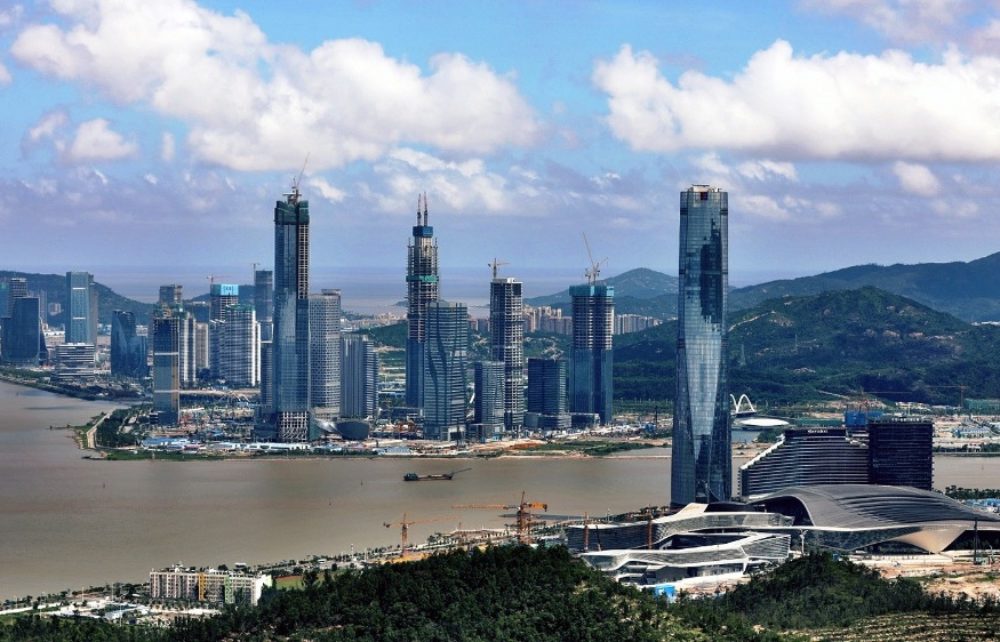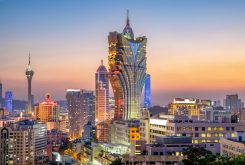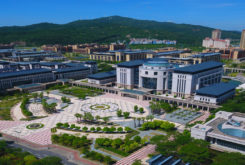The current blow to the gaming and tourism industry due to the global economic downturn has made even more urgent for the Macao Special Administrative Region (MSAR) to find new growth and income engines. With sights set in establishing a financial centre in MSAR, the Government of new chief executive Ho Iat Seng is pushing for specific services to be made available as soon as possible. The bond market, wealth management services and leasing, with an eye in the Great Bay Area, are also identified as development opportunities for the sector.
Speaking Monday in the presentation of the Government´s Lines of Action, Economy and Finance Secretary Lei Wai Nong said the financial sector has “objective conditions that contribute to the horizontal diversification” of the economy. The pace of development in this sector, he added, “should be accelerated”, with the necessary “infrastructures of the modern financial sector improved and created”.
The focus, Lei Wai Nong added, should be on the bond market, wealth management and leasing. “The goal for the bond market is to create an active secondary market as quickly as possible”, while for the management of wealth, the “various measures of support from the Central Government in favour of Macau should be taken advantage of, in an effort to explore the business of wealth management, of a bidirectional character, in the Greater Guangdong-Hong Kong-Macau Bay”.
Regarding financial leasing, local companies will be proactively encouraged to join the financial leasing projects within the scope of the construction of the Belt and Road initiative.
In terms of the development of horizontal diversification of the economic landscape, the financial sector has been one of the four pillars of Macau’s economy, with a weight in GDP of between 6.6% and 7%, according to Government figures. It has also created many high-value employment opportunities for the local labour market.
The Macau government mentioned in its action lines for 2020 the development of a modern financial industry and the need to build a service platform for trade cooperation between China and the Portuguese-speaking countries.
“We will be at the service of the Guangdong-Hong Kong-Macau Greater Bay area and the construction of the Belt and Road initiative for the promotion, innovation and development of technologies in the financial sector, we will accelerate the construction of financial, tangible and intangible infrastructure, and improve the legal regime for the financial sector, we will seek further extension of restrictions on the entry of banking and insurance institutions, among others, with a view to implementing a free movement of capital between Hengqin and Macau,” the guidelines said.
According to Lei Wai Nong, the “relatively monotonous sectoral structure constitutes the main problem of Macao’s economy”, with “the progress of local economic diversification not being noticeable”.
The Economy Secretary also outlined that the Greater Guangdong-Hong Kong-Macau Bay area is “undoubtedly the biggest platform” to explore the Mainland China market and create new opportunities and greater development space for SMEs and young people in Macau”. “We will encourage, through various policies and measures, companies and entrepreneurs to take advantage of the market and resources of the Greater Bay”, he promised.
In order to promote industrial diversification, availability of terrain represents a factor of restriction and problem, making Hengqin, located next to Macau, “a more direct and effective place for Macau to enter the Guangdong-Hong Kong-Macau Greater Bay market”. Thus, Lei Wai Nong added, “the direction of our efforts in the future will be directed towards accelerating the construction of the consolidation zone of Guangdong-Macau cooperation in Hengqin, transforming, as much as possible, Hengqin into another Macau, in order to overcome the restrictions caused by the limited geographic spaces of Macau”.
The role of Hengqin island was also highlighted last week by the Macau Chief Executive Ho Iat Seng during is 2020 Policy Address. While Macau’s land area amounts to just 32.9 square kilometres, Hengqin covers 106 square kilometres. It lies just a few hundred metres west of Macau’s Cotai gaming and tourism precinct. Macau has leased a one-square-kilometre plot of land on the island for the University of Macau (UM) campus.
Ho Iat Seng said that use will be made of the advantages of the possibility of vessel registrations in Macau, and the possibility of maritime cooperation, and fisheries cooperation with Portuguese-speaking countries, will be explored in a coordinated manner with the other cities of the Great Bay area or other regions of the Interior of China.
The document with the 20202 government policies for the current year regarding the Portuguese-speaking countries said that digital trade between China and the Portuguese-speaking countries and cross-border e-commerce will be developed so that Macau is part of the national trade value chain.
“We will build an international hub for trade between China and Portuguese-speaking countries, which will contribute to Macau’s good performance as a platform for trade activities between the parties,” the document said.
The document goes on to state that the government intends to build a cross-border settlement centre in Renminbi and study the possibility of creating a Renminbi-denominated stock market in order to boost the development of a modern financial industry.
Macau’s advantages as an autonomous customs area, a service platform for financial and commercial cooperation between China and the Portuguese-speaking countries and its foreign connection network will be used, in conjunction with Hengqin’s advantages in terms of space and resources, to strengthen the functions of openness to the outside, promoting the establishment of contacts between the Interior of China and the countries or regions covered by the Belt and Road, namely Portuguese-speaking and other Latin countries, contributing to the full openness of the country to the outside.
The cultural exchange between China and the Portuguese-speaking countries was not forgotten, with the Macau government promoting on the island of Hengqin the development of a film industry and the cultural and creative industries, to explore and showcase the cultural elements of Macau inherent in its long history as a cultural meeting point between East and West.
“We will take full advantage of Macau’s role as a platform for sports exchange and cooperation between China and the Portuguese-speaking countries to develop the sports and leisure industry,” said the Lines of Government Action for 2020.




